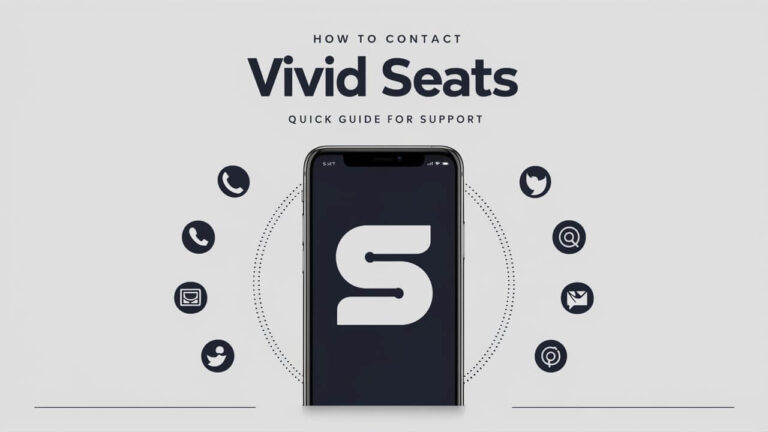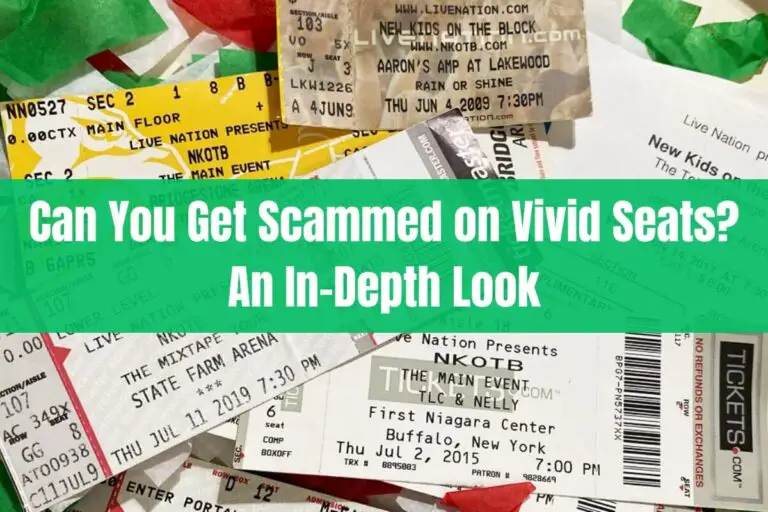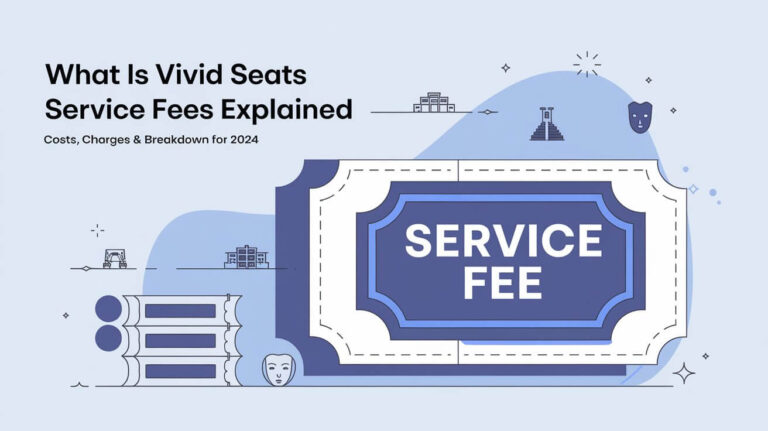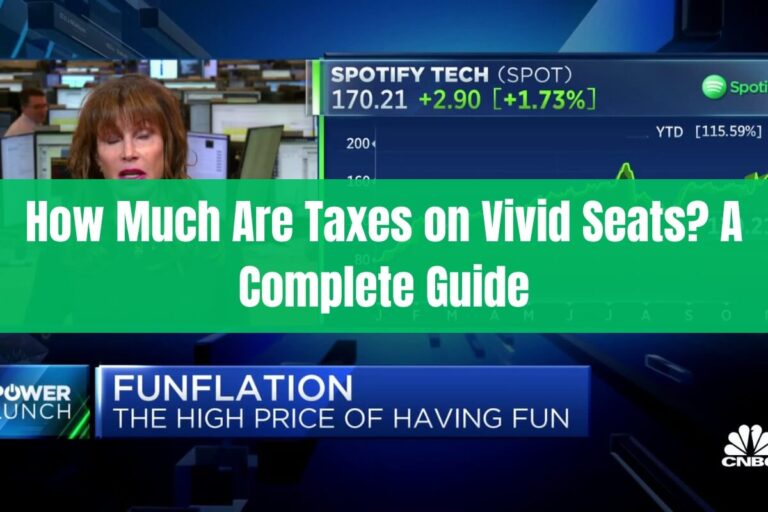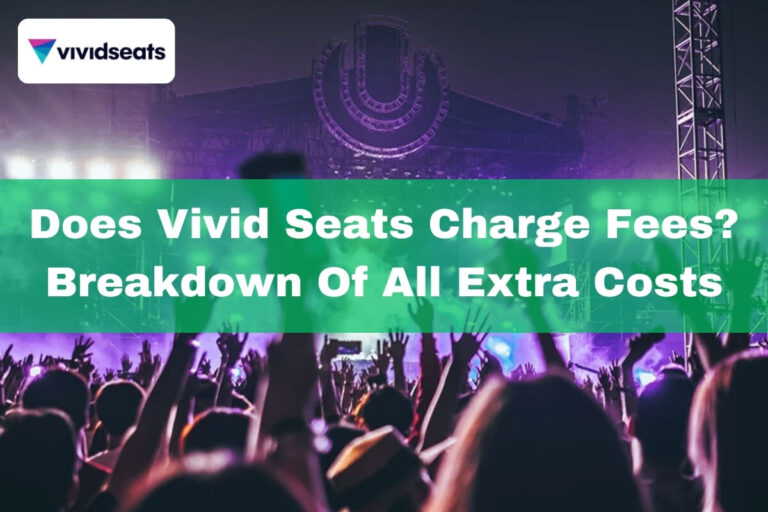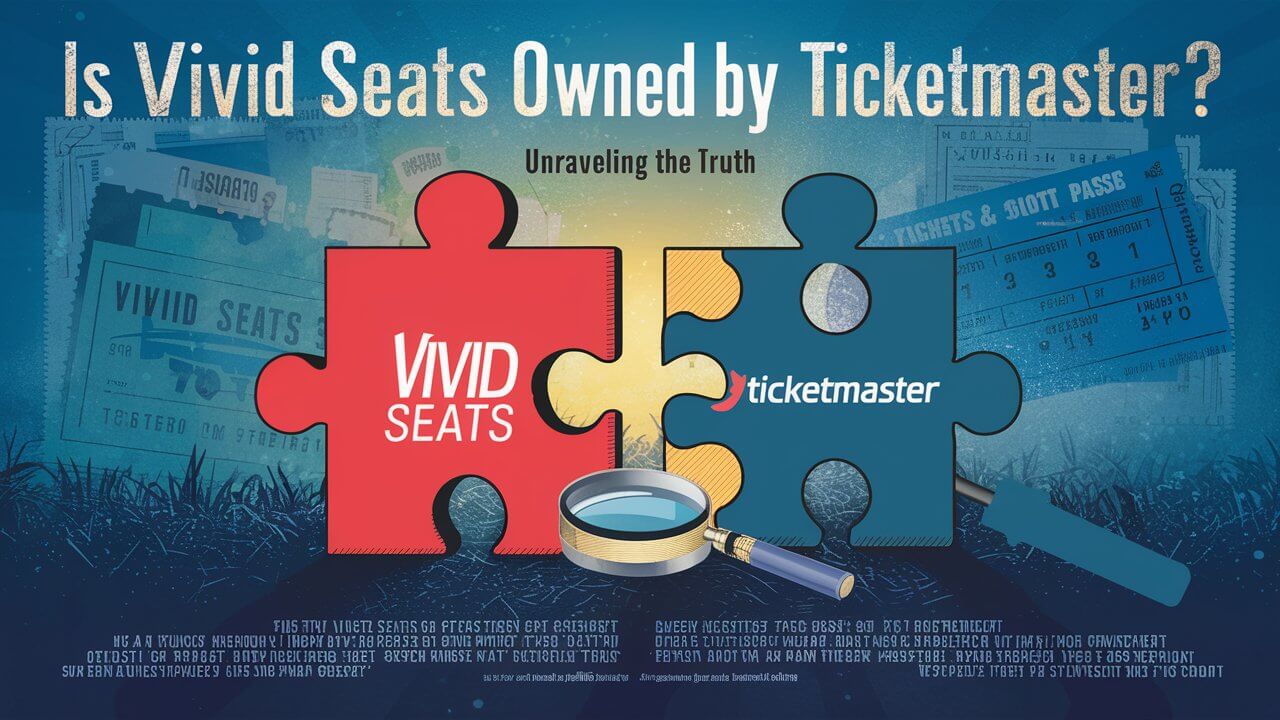
Ticketmaster does not own Vivid Seats. These two companies are separate entities in the ticket sales industry, each with a unique history, ownership structure, and business model. This article will explore the relationship between Vivid Seats and Ticketmaster, their roles in the ticketing world, and what this means for consumers.
The Basics: Vivid Seats and Ticketmaster
What is Vivid Seats?
Vivid Seats is a ticket marketplace founded in 2001 by Jerry Bednyak and Eric Vassilatos in Chicago, Illinois. It’s a platform where fans can buy and sell tickets for various events, including concerts, sports games, and theater performances.
Key features of Vivid Seats:
- Online ticket exchange and resale
- Founded in 2001
- Publicly traded company (NYSE and Nasdaq: SEAT)
- Offers a 100% Buyer Guarantee
What is Ticketmaster?
Ticketmaster, on the other hand, is a ticket sales and distribution company that’s been around since 1976. It’s now part of Live Nation Entertainment, following a merger in 2010.
Ticketmaster highlights:
- Primary ticket seller for many venues and events
- Established in 1976
- A subsidiary of Live Nation Entertainment
- Offers both primary and resale tickets
Key differences between Vivid Seats and Ticketmaster
While both companies deal in event tickets, they operate differently:
- Primary vs. Secondary market: Ticketmaster often sells primary tickets directly from event organizers. Vivid Seats focuses on the secondary resale market.
- Ownership: Vivid Seats is an independent public company. Ticketmaster is part of Live Nation Entertainment.
- Fees: Generally, Ticketmaster’s fees are lower than those on Vivid Seats for comparable tickets.
- Event partnerships: Ticketmaster has direct relationships with many venues and promoters. Vivid Seats relies on individual sellers and brokers.
Ownership of Vivid Seats
Founders of Vivid Seats
Jerry Bednyak and Eric Vassilatos started Vivid Seats in 2001. Their goal was to create a secure and user-friendly platform for buying and selling event tickets.
Current ownership structure
Vivid Seats has evolved from a private company to a publicly traded entity:
- 2016: Investment from Vista Equity Partners
- 2017: GTCR acquires majority stake for $575 million
- 2021: Vivid Seats goes public through a SPAC merger
Vivid Seats’ journey to becoming a public company
In October 2021, Vivid Seats hit a milestone by going public. Here’s how it happened:
- Merger announcement with Horizon Acquisition Corporation, a SPAC
- Completion of the merger
- Public trading begins on NYSE and Nasdaq under the ticker SEAT
This move gave Vivid Seats more resources to grow and compete in the ticketing industry.
Ticketmaster’s Ownership and Corporate Structure
Live Nation Entertainment and Ticketmaster
Ticketmaster’s ownership is quite different from Vivid Seats:
- 2010: Ticketmaster merges with Live Nation
- Result: Formation of Live Nation Entertainment
- Ticketmaster becomes a subsidiary of this larger entertainment company
Ticketmaster’s market position
As part of Live Nation Entertainment, Ticketmaster holds a strong position in the primary ticket sales market. It has deals with many venues and event promoters, giving it a significant advantage in the industry.
Comparing Vivid Seats and Ticketmaster
Business models
Vivid Seats:
- Focuses on secondary market ticket resale
- Acts as a middleman between buyers and sellers
- Charges a commission on sales and fees to buyers
Ticketmaster:
- Primarily sells tickets directly from event organizers
- Also offers a resale platform
- Charges fees to both buyers and event organizers
Ticket types and availability
Vivid Seats:
- Offers tickets for a wide range of events
- Availability depends on individual sellers
- May have tickets for sold-out events
Ticketmaster:
- The primary source for many events
- Often has first access to ticket sales
- Also offers resale options
Pricing and fees
Both platforms charge fees, but they can differ:
Vivid Seats:
- Service fees typically range from 20-40% of ticket price
- 10% commission from sellers
- Additional shipping charges may apply
Ticketmaster:
- Service fees vary but are often lower than resale sites
- Fees depend on the event and venue
- May offer fee-free tickets for some events
User experience and platform features
Vivid Seats:
- Intuitive search by event, date, or location
- Seat selection with interactive maps
- Rewards program for frequent buyers
Ticketmaster:
- Official ticket source for many events
- Waiting room system for high-demand sales
- Mobile ticket transfer options
Partnerships and Collaborations
Vivid Seats’ major partnerships
Vivid Seats has formed strategic alliances to boost its presence:
- ESPN: Official ticket provider since 2017
- Sports Illustrated: Ticket provider partnership
- Los Angeles Clippers: Official ticketing partner
- Various universities: Including Notre Dame and Tennessee
Ticketmaster’s industry connections
Ticketmaster’s partnerships are extensive due to its position in Live Nation Entertainment:
- Exclusive deals with many venues
- Partnerships with major sports leagues (NFL, NBA, NHL)
- Collaborations with artists and promoters
How Vivid Seats and Ticketmaster interact in the market
While not directly affiliated, these companies do interact:
- Competition for market share
- Occasional ticket transfers between platforms
- Both contribute to the overall ticketing ecosystem
The Ticket Resale Market
Vivid Seats’ role in secondary ticket sales
Vivid Seats is a major player in the resale market:
- Provides a platform for sellers to list tickets
- Offers hard-to-find tickets for sold-out events
- Implements pricing that fluctuates with demand
Ticketmaster’s approach to resale
Ticketmaster has adapted to include resale options:
- Ticketmaster Resale platform
- Verified tickets from fans and resellers
- Integration of resale and primary tickets in search results
Competition in the ticket resale industry
The resale market is competitive, with several key players:
- StubHub
- SeatGeek
- Gametime
- TickPick
Each platform aims to differentiate itself through features, pricing, or exclusive partnerships.
Customer Experiences
Vivid Seats reviews and reputation
Vivid Seats has mixed reviews:
Pros:
- Wide selection of tickets
- 100% Buyer Guarantee
- Rewards Program
Cons:
- Higher fees compared to primary sellers
- Some complaints about customer service
- Occasional issues with ticket validity
Ticketmaster customer feedback
Ticketmaster also receives varied feedback:
Pros:
- Official source for many events
- Often lower fees than resale sites
- Reliable ticket delivery
Cons:
- High-demand events can be frustrating to purchase
- Some users report technical issues
- Complaints about additional fees
Comparing customer guarantees and policies
Both companies offer guarantees to protect buyers:
Vivid Seats:
- 100% Buyer Guarantee
- Refunds for canceled events
- Comparable or better tickets if issues arise
Ticketmaster:
- Fan Guarantee
- Refunds for canceled events
- Assistance with ticket issues
Legal and Regulatory Landscape
Ticket resale laws and regulations
The ticket resale industry faces various regulations:
- State-specific laws on ticket resale
- Restrictions on bot purchases
- Disclosure requirements for resale prices
How Vivid Seats and Ticketmaster comply with regulations
Both companies must navigate complex legal landscapes:
Vivid Seats:
- Implements anti-fraud measures
- Provides transparent pricing
- Adheres to state-specific resale laws
Ticketmaster:
- Uses Verified Fan technology to combat bots
- Offers transparent fee structures
- Collaborates with legislators on ticketing laws
Future Outlook
Vivid Seats’ growth strategies
Vivid Seats is positioning itself for future growth:
- Expanding partnerships with sports teams and leagues
- Enhancing mobile app features
- Exploring international markets
Ticketmaster’s evolving role in live events
Ticketmaster continues to adapt to industry changes:
- Implementing blockchain technology for ticket verification
- Expanding dynamic pricing models
- Integrating more closely with venue operations
Potential changes in the ticketing industry
The future of ticketing may bring significant shifts:
- Increased use of mobile-only tickets
- Greater emphasis on personalized event recommendations
- Potential for decentralized ticketing platforms
FAQs About Vivid Seats and Ticketmaster
Can I transfer tickets between Vivid Seats and Ticketmaster?
Sometimes, but it depends on the specific event and ticket type.
Which platform has lower fees?
Generally, Ticketmaster has lower fees for primary ticket sales.
Are tickets on Vivid Seats guaranteed?
Yes, Vivid Seats offers a 100% Buyer Guarantee.
Does Ticketmaster own Vivid Seats?
No, Vivid Seats is an independent, publicly traded company.
Can I sell tickets on both platforms?
Yes, but each platform has its seller registration process and rules.

